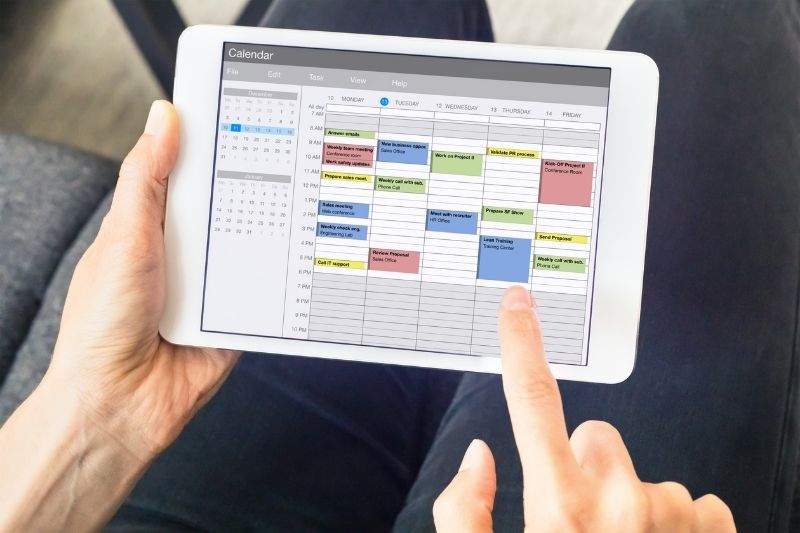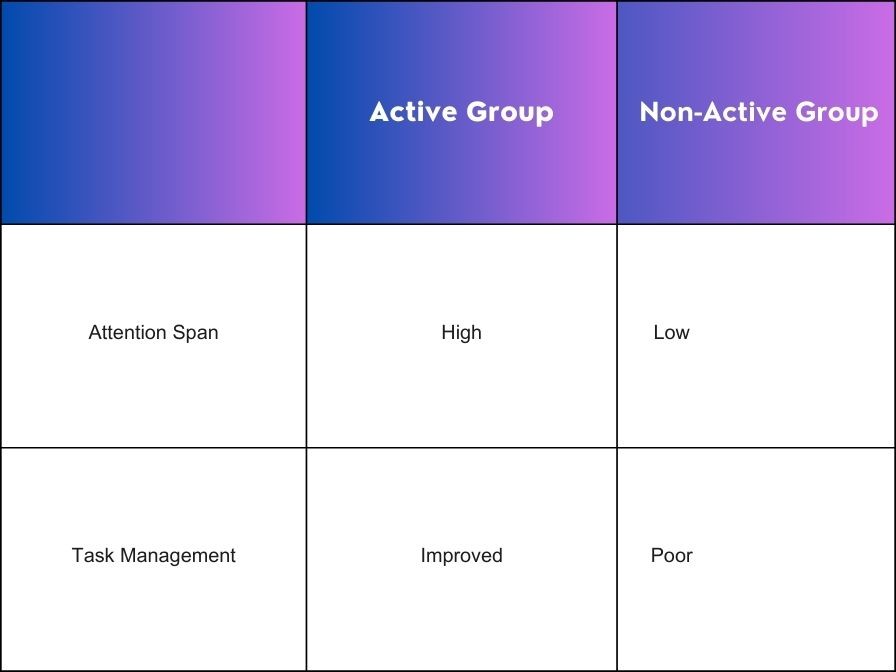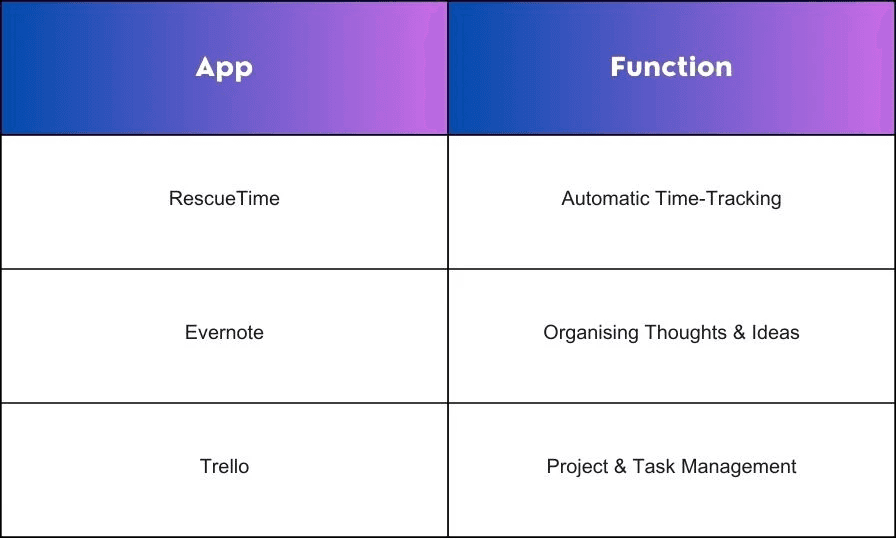Tips and Techniques
Effective Time Management Strategies for ADHD: Your Guide to Mastering the Clock
Written by
Jacqui Walker
Published On:
Oct 20, 2023
Having ADHD doesn't mean you're destined to be disorganised. On the contrary, with the right strategies in place, managing time with ADHD can become a strength rather than a struggle.
By understanding how your brain works and implementing effective techniques, you'll find that staying on top of tasks and maintaining productivity become second nature.
There's a wealth of practical ADHD productivity tips designed specifically to help you manage your time efficiently. From using tech tools to managing distractions effectively, we'll explore some proven tactics that can significantly boost your personal and professional efficiency.
Understanding ADHD and Its Impact on Time Management
Attention Deficit Hyperactivity Disorder (ADHD) is a condition that can make time management feel like an uphill battle. It's not just about being 'scatterbrained' or 'disorganised'. Living with ADHD often means struggling to maintain focus, battling impulsivity, and wrestling with restlessness.
So how does this impact your ability to manage time? Well, individuals with ADHD frequently find it hard to estimate how long tasks will take. They may get caught up in the moment, losing track of time entirely.
Even simple daily tasks can become daunting when your perception of time doesn't align with reality.
But let's flip the coin for a moment. Believe it or not, there are some aspects of ADHD that can actually be beneficial for managing time effectively. For instance:
Hyperfocus: People with ADHD often have the ability to hyperfocus on tasks they find particularly interesting.
Creativity: Those living with this condition tend to think outside the box – a trait that can be harnessed effectively for problem-solving.
Resilience: The challenges associated with having ADHD often foster resilience – an essential quality when facing setbacks.
Don't mistake this as making light of your struggles; rather, it's about recognising that there are ways you might turn certain aspects of your experience into strengths when tackling time management challenges.
Here's what is important, though: understanding how your brain works is crucial if you're seeking effective strategies for managing time with ADHD.
While traditional productivity tips might work for some people, they may not always fit well within an 'ADHD framework'. Instead, it's key to find techniques tailored specifically towards working productively within your unique way of processing information and perceiving time.
Let's work on turning frustration into productivity with these ADHD time management strategies.
Common Time Management Challenges Faced by Individuals with ADHD

Navigating the day can seem like a constant race against the clock if you're grappling with ADHD. The obstacles in managing time effectively are numerous, but there are some common ones that most individuals with this condition have to deal with.
Time Blindness
First off, understanding and estimating the passage of time is often difficult for those dealing with ADHD. You might find yourself frequently running late or underestimating how long tasks will take to complete.
This challenge isn't solely related to poor planning; it's linked directly to your brain's inner workings. Research indicates that people with ADHD often experience what's called "time blindness", making it tough for them to keep track of time consistently.
Prioritisation Issues
Secondly, prioritising tasks is another hurdle you might face when trying to manage your time effectively.
Often, those living with ADHD struggle to discern which tasks should be tackled first and which can wait until later. This lack of clarity can lead down a path of confusion and unproductive activity.
Distractions
Lastly, distractions pose a significant challenge for folks dealing with ADHD. It's not uncommon for you to become sidetracked while working on tasks, causing delays and disruptions in productivity levels.
Remember, recognising these common challenges is only half the battle won. The next step involves using effective strategies specifically tailored toward managing these issues, something we'll discuss further in this article.
Importance of Effective Time Management Strategies for ADHD
Time slips away quickly, doesn't it? Particularly when you're grappling with ADHD. In fact, time management can be a real headache for individuals with ADHD. Not only does it cause stress and anxiety, but poor time management can also lead to missed deadlines and opportunities.
But don't worry! By implementing effective time management strategies, you're taking a significant step towards boosting productivity and reducing those high stress levels.
You see, people with ADHD often struggle with procrastination. It's not that they're lazy or lack motivation; rather, they have difficulty starting tasks due to an impairment of the executive function - the part of the brain responsible for decision-making and organisational skills.
That's where ADHD time management strategies come in handy. These techniques provide structure and routine, making it easier to initiate tasks and keep on top of your workload.
So what does this look like in practice?
Well, one strategy is breaking down larger tasks into smaller, manageable parts - think bite-sized pieces rather than mouthfuls! This approach makes daunting projects seem less overwhelming and more achievable.
Another method is using tools such as timers or alarms to keep track of time spent on activities. Forget about guessing how long something will take; let technology do the hard work!
Let's talk numbers now because managing time with ADHD isn't just about personal satisfaction; there are wider implications too. Studies show that adults with ADHD are 18% less productive in their jobs compared to those without the disorder.
So by adopting these ADHD productivity tips, you could significantly impact your professional performance too.
As such, effective time management is critical for individuals dealing with ADHD. It reduces stress levels, boosts productivity, and improves the overall quality of life – both personally and professionally.
Scheduling Techniques: Making the Most Out of Your Day

An effective way to start is by understanding your most productive hours. Everyone has a unique body clock or circadian rhythm that influences their energy levels throughout the day.
For example, if you're a morning person, it's best to schedule demanding tasks during this time when your attention span is at its peak.
Moreover, many apps offer features like reminders, timers, and visual aids which can be immensely helpful in managing time with ADHD:
Trello organises tasks into neat boards.
Evernote helps keep all notes in one place.
RescueTime provides insights into how much time is spent on various activities.
Remember not to overcrowd your schedule. It's important to factor in breaks because they help rejuvenate your mind and maintain productivity consistently throughout the day.
Finally, don't forget about self-care routines. Regular exercise boosts mental clarity, while mindfulness practices such as meditation can enhance focus - both crucial for managing daily life with ADHD.
With these tips under your belt, tackling each day head-on will become less daunting and more achievable than ever before!
Remember, these strategies are not set-in-stone rules, but guidelines meant to aid in making each day better than yesterday. Keep experimenting until you find what works best for you, and remember: progress over perfection!
Cognitive Behavioural Approaches to Enhance Focus and Productivity
Cognitive-behavioural approaches are techniques that help retrain your brain to overcome the challenges of ADHD. They're particularly useful in managing time and boosting productivity.
Goal-Oriented Action Planning (GOAP)
One such approach is goal-oriented action planning (GOAP). It's a strategy where you break down a large task into smaller, manageable chunks.
For example, if you've got a big report due at work, instead of tackling it all at once, which can be overwhelming, GOAP encourages you to divide it into sections and tackle each one separately. This helps keep the process manageable and reduces stress levels.
Time Perception Training
Another cognitive-behavioural tool is time perception training. Many individuals with ADHD struggle with estimating how long tasks will take, often leading to procrastination or rushed jobs.
Time perception training teaches you to accurately gauge time through exercises like timing everyday activities or using timers for tasks.
Mindfulness-based Cognitive Therapy (MBCT)
Let's not forget about mindfulness-based cognitive therapy (MBCT). This technique combines mindfulness methods like meditation with aspects of cognitive therapy.
It encourages you to focus on the present moment rather than worrying about what's already happened or might happen in the future. For someone struggling with ADHD time management, this skill can be incredibly beneficial as it reduces distractions and enhances concentration.
Structured Problem Solving (SPS)
Now we have structured problem solving (SPS). When faced with a challenge or obstacle, many people with ADHD may feel overwhelmed or unsure of how to proceed.
SPS provides a step-by-step method for breaking down these issues and coming up with feasible solutions—boosting efficiency and reducing anxiety.
Remember that these strategies aren't just quick fixes; they require practice and commitment over time.
By incorporating these techniques into your daily routine, managing time with ADHD can become less challenging, and you'll start to see a noticeable boost in your productivity. Give them a try; you might just be pleasantly surprised by the results!
Role of Physical Activity in Improving Time Management Skills
Regular exercise has been shown to improve cognitive function and boost productivity, two key components that play a vital part in managing time effectively.
Physical activity is like your secret weapon against ADHD. It's proven to enhance focus and attention span, which are often challenges for those with ADHD. The science behind this is quite intriguing!
When you exercise, your brain releases chemicals like dopamine and norepinephrine – the very same substances that are low in people with ADHD. This natural boost can help balance brain chemistry and improve your ability to stay on task.
What's more? Getting active doesn't mean spending hours at the gym or running marathons daily (unless that's what you enjoy). Simple activities such as:
Taking a brisk walk
Doing some yoga stretches
Cycling around your neighbourhood
These can all contribute positively towards sharpening your focus and improving your time management skills.
Now let's look at some numbers.
A study conducted by the Journal of Abnormal Child Psychology found that children with ADHD who participated regularly in physical activities showed substantial improvements in their ability to pay attention, avoid distraction, and manage tasks effectively compared to their non-active counterparts.

Remember, though, that while physical activity plays a crucial role in managing time with ADHD, it isn't a magic bullet solution but rather one piece of a broader strategy.
Coupled with other methods such as planning ahead or utilising digital tools for scheduling tasks, this can really rev up productivity levels!
That said, incorporating regular physical activity into your routine could be just the strategy you need to improve your time management skills and boost your overall productivity. It's time to get moving!
Leveraging Technology: Helpful Apps and Tools for Managing Time
Time management is often a significant challenge for those dealing with ADHD. However, technology today provides us with a plethora of tools designed to help us manage time more effectively.
For individuals with ADHD, these apps might just be the key to improving productivity.
RescueTime
One such app that's worth considering is RescueTime. It's automatic time-tracking software that gives you an accurate picture of how you spend your day on your devices.
This can be particularly useful if you're struggling with managing time due to ADHD, as it allows you to see where your time goes, helping in identifying patterns and making necessary changes.
Evernote
Perhaps Evernote could also be of interest? It's fantastic for organising thoughts and ideas all in one place. You can create digital notebooks for everything from keeping track of your expenditures to jotting down ideas or plans.
Seeing as disorganisation can often hinder productivity when living with ADHD, having a tool like Evernote at hand could make all the difference.
Trello
Now let’s talk about Trello. This app allows users to create boards for different projects and tasks – think of it as a digital bulletin board. Within each board, you can make lists filled with cards representing individual tasks or steps within a project.
By providing both micro and macro views of tasks, Trello helps manage larger projects without feeling overwhelmed – certainly beneficial when managing time with ADHD!
Remember, though, that while there are countless apps out there promising increased efficiency and better organisation skills, not every single one will work wonders for everyone. It's essential to experiment until you find what suits your specific needs best.
Here's a table summarising some top-rated tools:

From tracking the way you use your hours in the day to organising your thoughts, each of these apps can be tailored to meet your unique ADHD time management needs. So why not give them a go?
You might just stumble upon the perfect tool to boost your productivity levels and better manage ADHD's daily challenges.
Wrapping Up: Embracing New Strategies for a More Organised Life
Managing time with ADHD isn't about striving for perfection. It's about embracing new strategies that can help you live a more organised life.
Whether it's breaking tasks down into manageable chunks or using tools like planners and timers, every little change can have a profound impact on your daily routine.
By implementing these ADHD productivity tips, you'll find yourself not only getting more done but also feeling less overwhelmed by the demands of everyday life. And remember—progress is progress, no matter how small.


